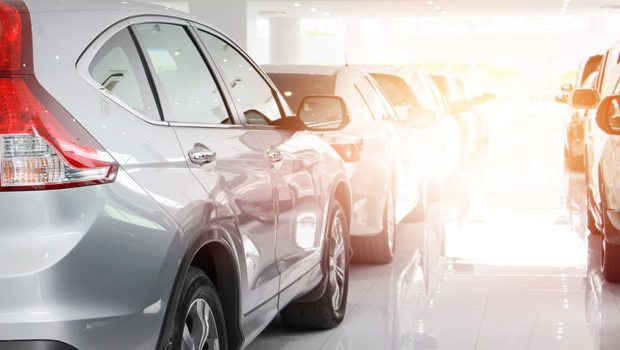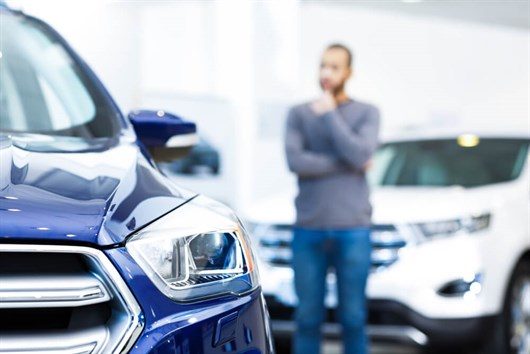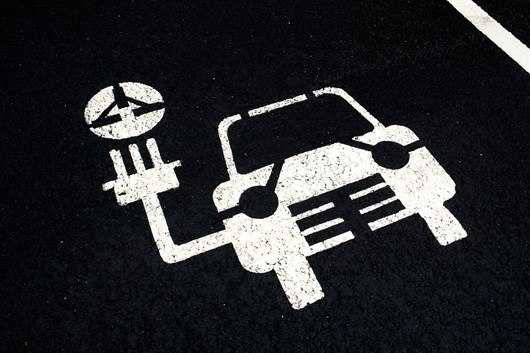New car sales fall for fifth consecutive month

- New car registrations fell nine per cent in July 2022, the fifth month in a row that sales have fallen.
- Electric vehicles grew their market share to 10.9 per cent, but the pace of growth has slowed.
- The SMMT has revised its industry outlook for the year downwards.
New car sales fell nine per cent in July - the fifth consecutive month of decline - as the supply chain shortage continues to impact order fulfilment.
A total of 112,162 car were registered last month, according to the latest figures from the Society of Motor Manufacturers and Traders (SMMT), which has revised its outlook for the rest of the year downwards.
It is now anticipating 1.6 million new car registrations for the full year - a fall of 2.8 per cent on 2021, with the new car market experiencing what it describes as "its most challenging year for three decades".
Ongoing global supply chain issues, mainly the lack of semiconductors, continued to affect order fulfilment in July, exacerbated by Covid lockdowns in key manufacturing and logistics centres in China, plus disruption from the war in Ukraine, all of which restricted production output and therefore supply into the UK new car market.

Retail customers 'prioritised'
Declines were driven primarily by an 18.2 per cent fall in registrations by large fleets of company cars, to 50,014 units, while consumer registrations remained steady at 59,847 units.
As a result, private registrations in the year to date are now 3.7 per up on 2021 as manufacturers prioritise private customers, according to the SMMT.
Battery electric vehicle (BEV) uptake grew 9.9 per cent to 12,243 sales to achieve a 10.9 per cent market share for the month. This is the weakest monthly uplift recorded by BEVs since the start of the Covid-19 pandemic.
However, the SMMT expects plug-in vehicles to continue to grow their market share to 22.6 per cent this year as manufacturers prioritise investment in zero emission vehicle production.

Supply issues should start to recede
The sector expects the second half of the year to improve as supply issues start to recede, although it is unlikely that the market will be able to recover the significant losses sustained so far.
Chris Evans, head of sales at online used car marketplace heycar, said that improved new car supply through the remainder of 2022 should lead to a "more stabilised period of supply in 2023".
However, he added: "There are still some big challenges ahead, with the cost-of-living crisis and low consumer confidence creating challenging trading conditions for the remainder of 2022."
"There are still some big challenges ahead." Chris Evans, heycar
Richard Peberdy, UK head of automotive at KPMG, said that rising energy costs will "further test consumer ability to purchase new cars in the remaining months of the year, including electric vehicle adoption appetite".
"The cost of manufacture will also likely rise further, along with prices,” he added.
Mike Hawes, SMMT chief executive, said: "While order books are strong, we need a healthy market to ensure the sector delivers the carbon savings government ambitions demand. The next Prime Minister must create the conditions for economic growth, restore consumer confidence and support the transition to zero emission mobility.”
How many new cars were sold in July 2022
A total of 112,162 new cars were registered in July 2022, according to the latest figures from the Society of Motor Manufacturers and Traders (SMMT).
How many electric cars were sold in July 2022?
There were 12,243 sales of battery electric vehicles (BEV) in July 2022, according to the latest figures from the Society of Motor Manufacturers and Traders (SMMT).
Can a car dealer change the part exchange value of my car after the contract has been signed?

Are manufacturers trying to make people buy base models?


